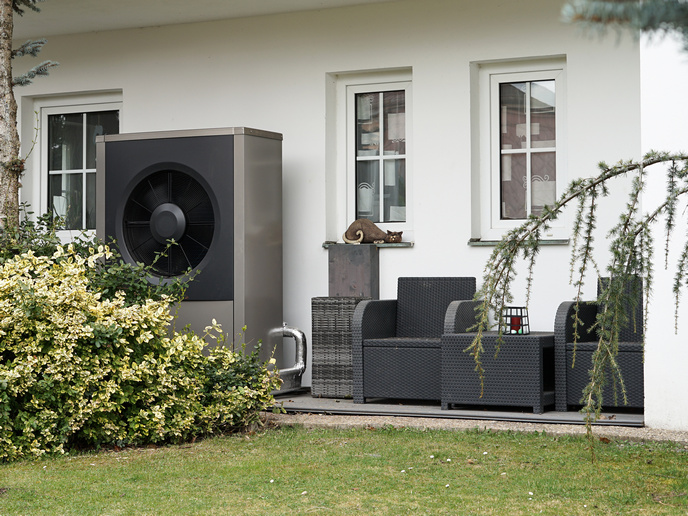Multi-stage heat pumps ignite a ‘chain reaction’ of greener homes
The EU is taking significant steps to combat climate change and reduce greenhouse gas emissions. With existing buildings accounting for a significant portion of energy demand and CO2 emissions, the EU-funded HAPPENING(opens in new window) project aims to boost the renovation rates that currently stand at a mere 1 %(opens in new window). Central to HAPPENING is the implementation of decentralised heat pump cascade systems. This cutting-edge concept combines the best aspects of both central and individual systems to overcome the technical and non-technical challenges associated with the retrofitting of energy systems in buildings. “The decentralised heat pump system works by having individual heat pumps installed in each dwelling rather than relying solely on a single central heating system. This allows for better control over energy management and generation, as well as increased efficiency,” notes project coordinator Irantzu Urkola Lekuona. By decoupling energy generation from consumption, the system can optimise the production cost of the central heat pump and use locally generated electricity (photovoltaic panels) more effectively. In other words, “inhabitants with HAPPENING technology installed in their buildings can enjoy the advantages of both central and individual systems,” adds Urkola. “These benefits include generating tempered water during peak hours, minimising heat losses through low-temperature distribution, and offering versatility as each dwelling can choose a configuration that better suits their needs and interests.”
A two-stage thermal transformation
The decentralised heat pump cascade system works in two stages to optimise energy efficiency and provide tailored solutions for each dwelling. In the first stage, central aerothermal heat pumps generate ‘neutral temperature’ water (20-30 °C), creating the first thermal gap. A thermal energy storage system at the central level stores this tempered water, promoting better control of the system. The tempered water is then distributed to individual dwellings. In the second stage, decentralised heat pumps within each dwelling increase the temperature from the ring temperature (20-30 °C) to the consumption temperature, creating the second thermal gap. At this individual level, inhabitants can choose from a variety of configurations to suit their specific needs. “Options include using a water-to-water micro heat pump for domestic hot water combined with several water-to-air micro heat pumps for heating and cooling in rooms,” explains Urkola. “Another option is using a water-to-water booster heat pump for both domestic hot water and heating combined with low-temperature heat emitters.” This innovative two-steps system is being showcased at the three demo sites in Spain, Italy and Austria. This innovative system based on heat pumps can be powered by locally generated renewable energy, and its operation can be optimised thanks to a smart management and control system. Over the course of the project, micro heat pumps with R290 (propane) refrigerant were developed for various configurations at the dwelling level, catering to specific needs. This innovative heat pumps technology are demonstrated at the Italian demo case.
A triple win: tailored heat pumps, improved financing, streamlined retrofitting
The team developed new financial and business models, bringing financial experts and innovative financing models into the residential retrofitting sector. Furthermore, HAPPENING tackled barriers related to knowledge and training by providing resources and tools to streamline the entire retrofitting process, from planning to implementation and operation. The goal was to manage the risk of energy performance gaps between designed and installed thermal systems while reducing complexity, effort and investment risk. HAPPENING is nearing completion, offering a versatile, scalable and replicable solution. This contributes to the EU’s climate protection targets and helps create a more sustainable built environment.



